
Question and Answers Forum
Previous in Relation and Functions Next in Relation and Functions
Question Number 173678 by mathlove last updated on 16/Jul/22
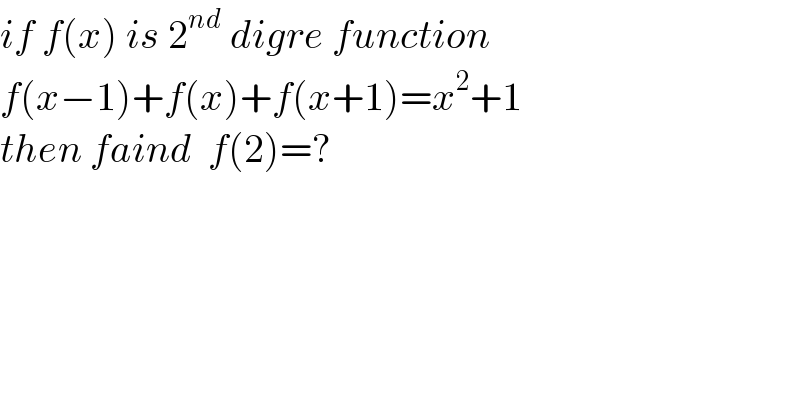
Answered by Rasheed.Sindhi last updated on 16/Jul/22
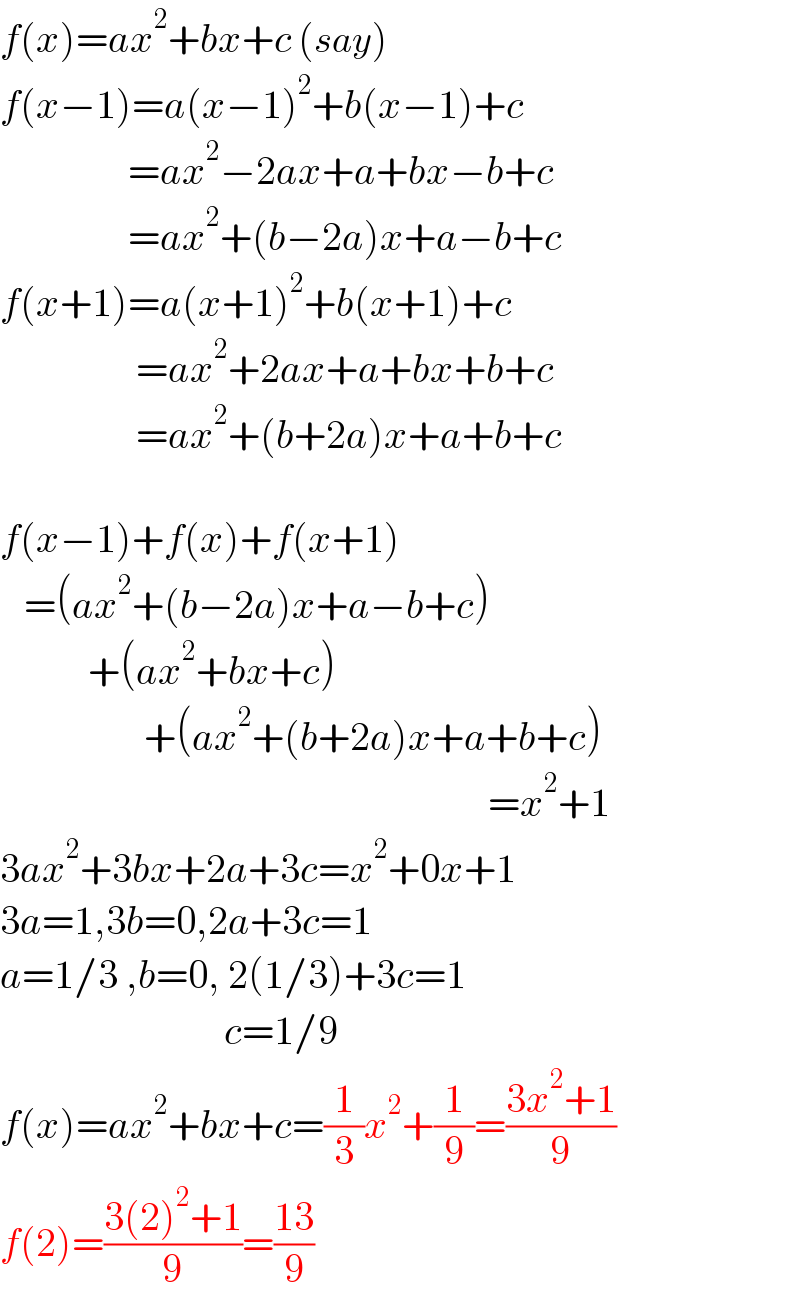
Commented by mathlove last updated on 16/Jul/22

Commented by Rasheed.Sindhi last updated on 16/Jul/22

Commented by Tawa11 last updated on 16/Jul/22

Answered by Rasheed.Sindhi last updated on 16/Jul/22
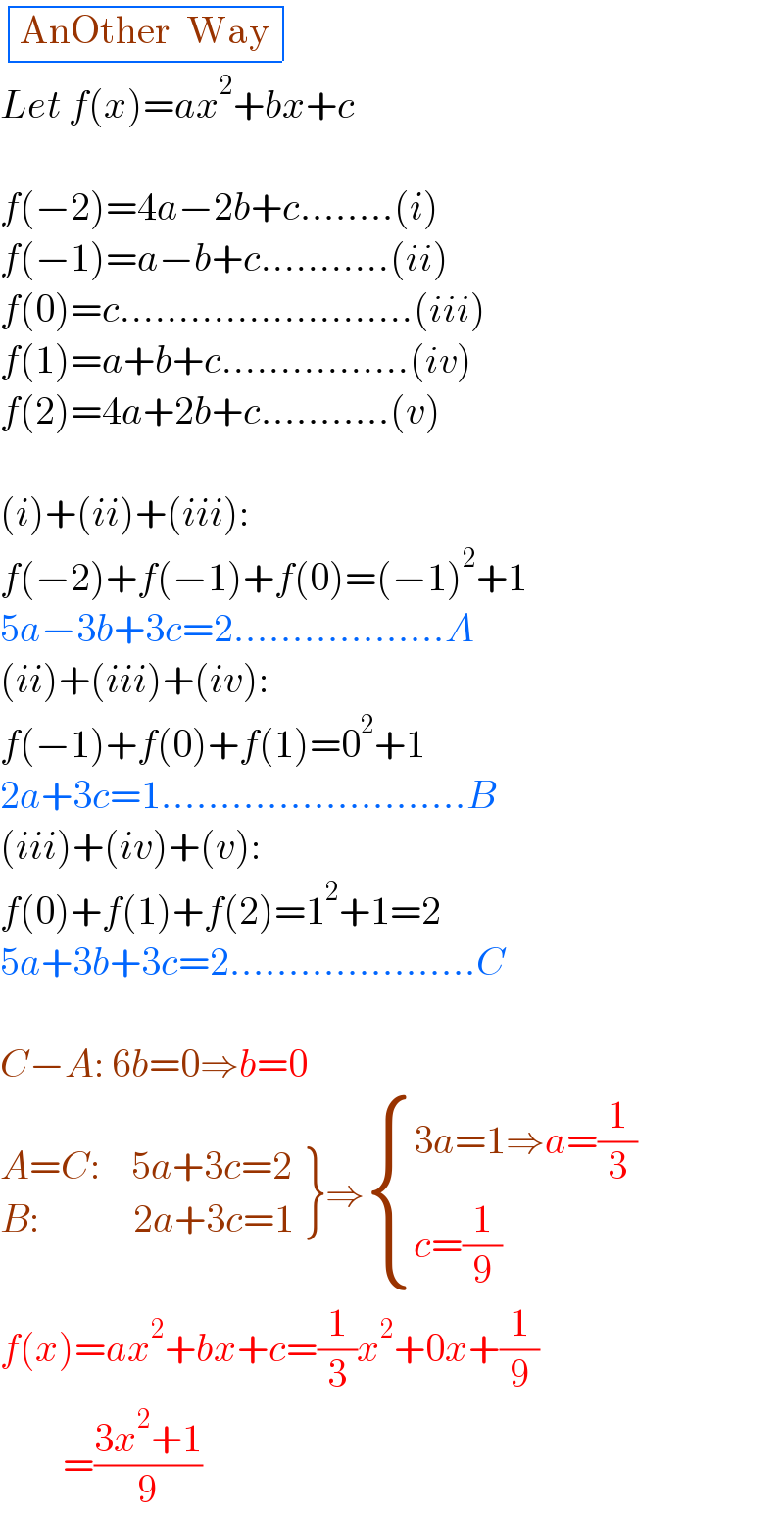
Commented by mathlove last updated on 16/Jul/22
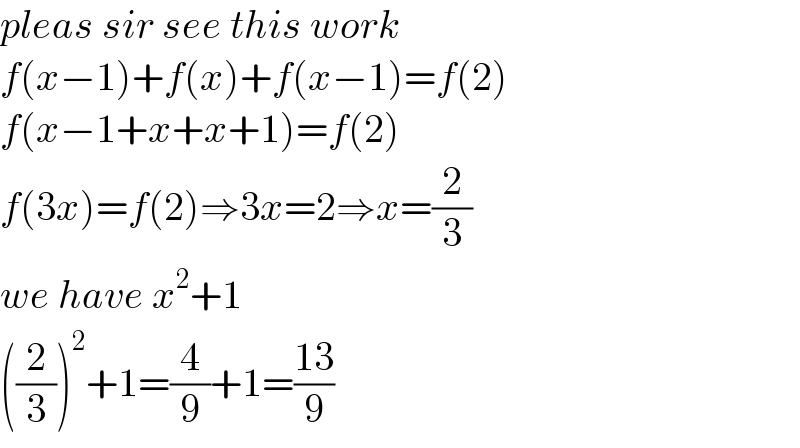
Commented by Rasheed.Sindhi last updated on 16/Jul/22
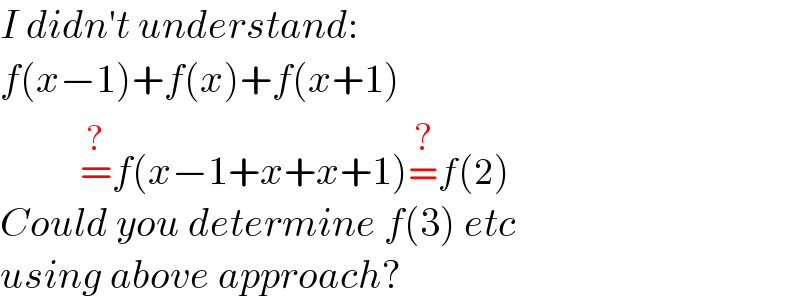
Commented by mathlove last updated on 17/Jul/22

Commented by Tawa11 last updated on 17/Jul/22

Answered by pablo1234523 last updated on 16/Jul/22
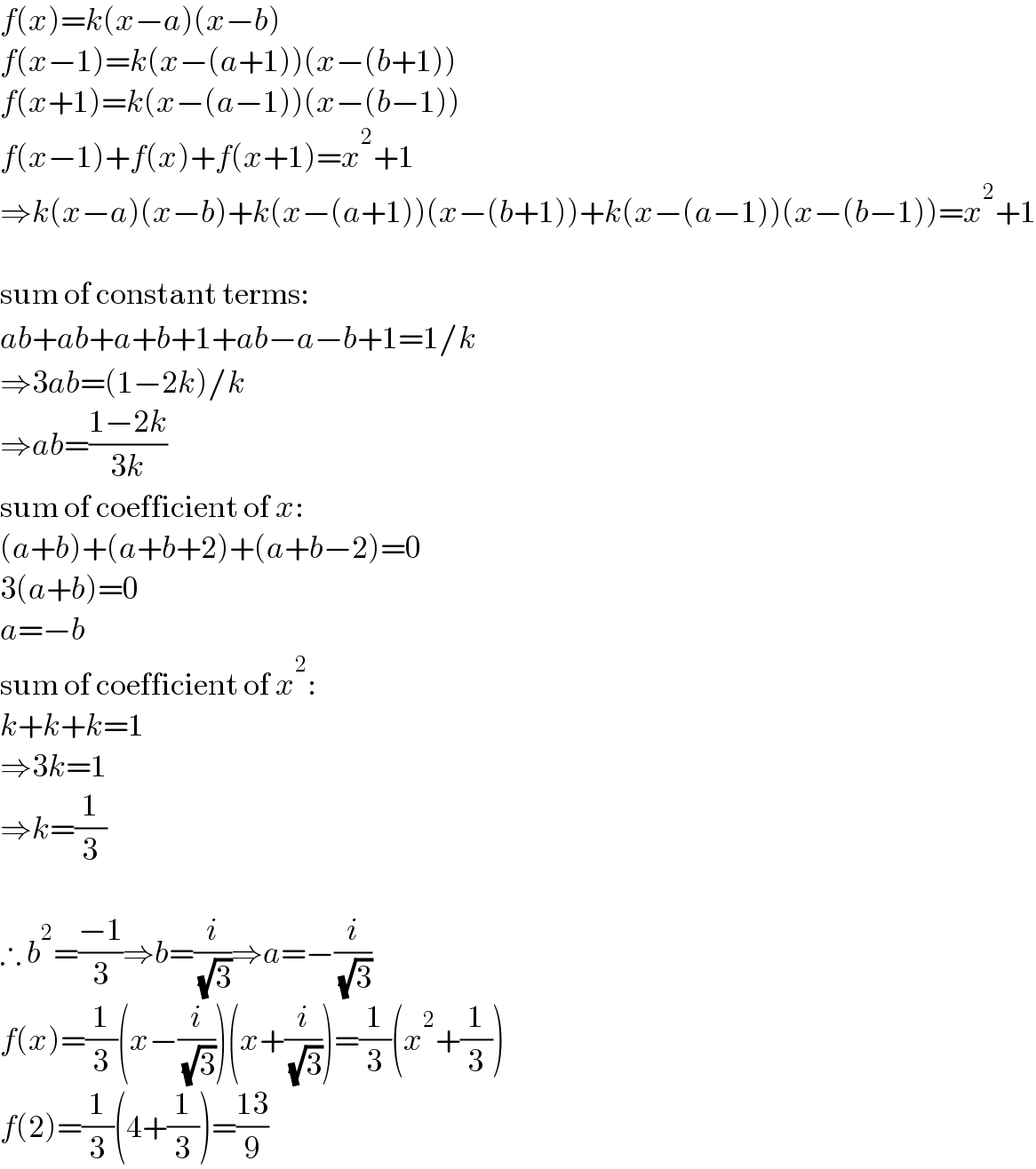
Commented by mathlove last updated on 17/Jul/22

